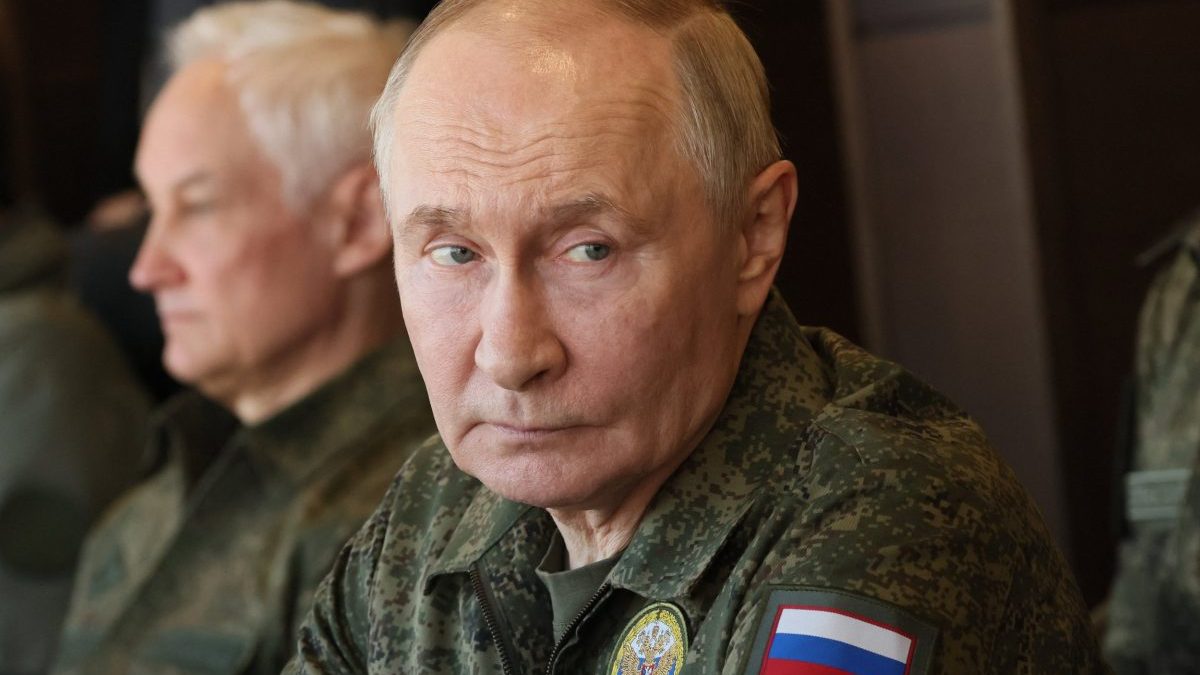King Charles made a bold statement on Ukraine during his state dinner for President Donald Trump: “Today, as tyranny once again threatens Europe, we and our allies stand together in support of Ukraine, to deter aggression and secure peace.”
That bit about securing peace was a nod to Trump’s fancied self-image as a peace-maker, but it was a high-stakes move. The President nodded lightly, possibly grunted, but didn’t demur. The next day, at a press conference with Sir Keir Starmer, Trump himself chastised the Russian president, Vladimir Putin, saying, “he’s really let me down”.
Trump feels somewhat awkward that Putin can’t be bothered to pretend to want peace after the Alaska summit, and is instead raining missiles and drones on Ukrainian civilians. However, the US President is practically unembarrassable and you will never hear him express regret.
What Trump really hates is a “loser”. And Putin is not winning the war he started by invading Ukraine three and a half years ago. As Trump said in Britain: “Putin is killing more people, and he is losing more people than he is killing.”
General Keith Kellogg, Trump’s special envoy to Ukraine, deserves credit for spelling out this message forcefully to Trump at the White House, backed by Dan “Razin” Caine, chairman of the Joint Chiefs of Staff.
“If Putin thinks Russia is winning, his definition of winning and my definition of winning are absolutely two different things,” Kellogg said at a security conference in Kyiv this week. “If he [was] winning he’d be west of the Dnipro River. If he was winning, he’d be in Odessa… Russia is, in fact, losing this war.”
Caine, according to Kellogg, agreed – “nope, not winning” – when Trump asked what he thought of this assessment.
Ukrainians jokingly call the special envoy St Kellogg because Putin doesn’t dare to bomb Kyiv when he is in town. But his advice is having an impact on the person who matters most in Washington.
It is dawning on Trump – normally so persuasive at bending Republicans to his will – that none but the most determined Maga cultists believe that Ukraine “started” the war and that President Volodymyr Zelensky should be cast adrift.
There are over 700,000 Russian soldiers on the frontline with Ukraine, Putin told Russian parliamentarians this week. Yet they still can’t win against a country one twenty-eighth of its size.
Russian forces have been advancing slowly in eastern Ukraine, at a terrible cost to their own troops. Since November 2022, they have taken less than 1 percent of Ukraine’s territory and suffered a million casualties.
I’m reminded of Blackadder Goes Forth, when First World War General Melchett, played by Stephen Fry, examines a small patch of “recaptured” turf at his HQ.
“What’s the scale of this?” he asks. “One-to-one… it’s life-size,” his aide Darling sheepishly replies.
In Russia, a nationalist blogger with the pen-name Maxim Kalashnikov has claimed: “We came to ‘liberate’ Russian regions but we’ve turned them into ruins.” He suggested that any attempt to seize big cities, like Odessa, would turn into a “meat grinder” and concluded, “We’ll just wear ourselves out if we start another mobilisation.”
Unusually, Dmitry Kozak, Putin’s chief of staff and a former envoy to Ukraine, has – voluntarily or not – just resigned his post, reportedly over his support for peace talks.
So what’s the game plan? Putin still thinks he can win a war of attrition but Ukrainian missiles have been blowing up oil refineries deep in Russian territory, damaging the Russian economy, while he is the bad guy slaughtering Ukrainian civilians.
Public sympathy in America and Britain is firmly with Ukraine. By accident or design, Queen Camilla was wearing royal blue for the Windsor state dinner, while Melanie Trump was in bright yellow, reflecting the colours of the Ukrainian flag in photographs of the occasion.
Putin should have seized the opportunity to make peace that was offered in Alaska. Ukrainians want an end to the killing and would have accepted difficult terms. Now the Russian leader is stuck in a “forever war” of the kind Trump despises.
This is the time for European leaders to pile on the pressure on Russia rather than to gripe about Trump’s half-hearted support. It was embarrassing for them to be confronted with Trump’s post on Truth Social that he was ready to “do major sanctions” on Russia when “all Nato Nations STOP BUYING OIL FROM RUSSIA.”
Trump’s post was criticised as a delaying tactic but Ursula von der Leyen, the European Commission President, was forced to agree that, yes, Europe could do more on this score. “Russia’s war economy, sustained by revenues from fossil fuels, is financing the bloodshed in Ukraine,” she stated.
At the very least, Europeans could confiscate frozen Russian assets to raise money for Ukraine, challenge Russian tankers that are smuggling oil abroad and provide more long-range missiles to Ukraine, according to Veronica Anghel and Sergey Radchenko, writing this week in Foreign Affairs.
Trump is teetering on the edge of giving up on Putin. He can’t be allowed to give up on Ukraine.
Sarah Baxter is director of the Marie Colvin Center for International Reporting
